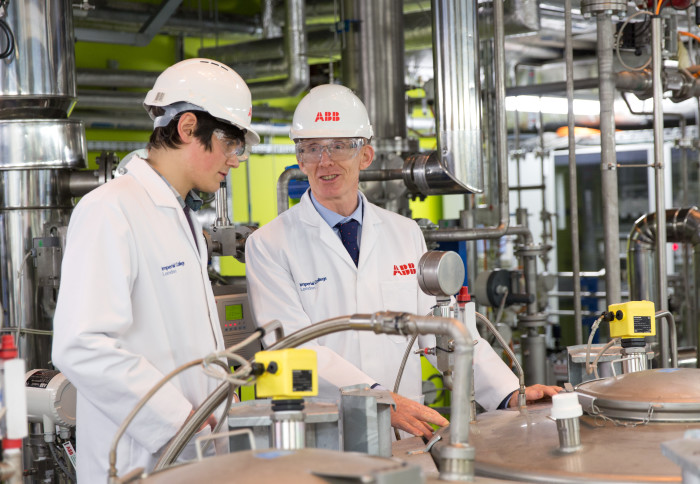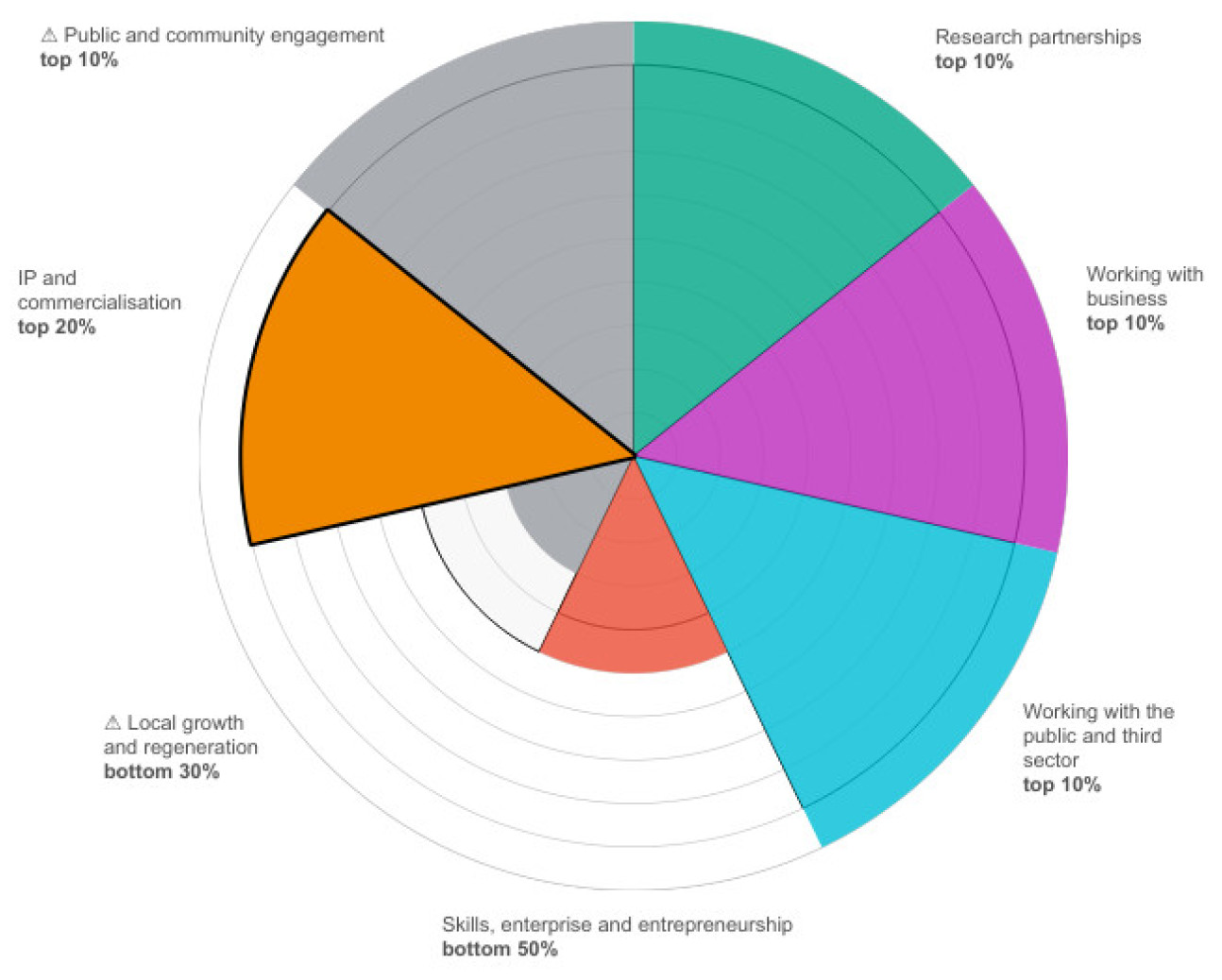Imperial performs strongly in Research England’s Knowledge Exchange Framework
by Sarah Saxton

Imperial scores top marks in four out of seven categories in Research England’s new Knowledge Exchange Framework.
The Knowledge Exchange Framework (KEF) focuses on the wide range of activities that higher education institutions undertake with external partners for the benefit of the economy and society. These can include partnerships with business, running public events or licensing intellectual property so that others can use it.
Each of the institutions taking part in the KEF was put into a cluster alongside similar institutions. Imperial was grouped with other institutions that are ‘very large, very high research-intensive, undertaking significant amounts of excellent research’.
Strong Imperial performance
The KEF examines performance in seven categories, with the score being determined using metrics and evidence from the institution.

The College was in the top ten percent (the top score available) for four categories assessed - public and community engagement, research partnerships, working with business and working with the public and third sector.
Professor Nick Jennings, Vice Provost (Research and Enterprise) said: “Creating real world benefits is a core part of Imperial’s mission and it is something that we have focused on since we were founded in 1907. I am delighted to see our efforts in this area recognised in Research England’s first Knowledge Exchange Framework.
“The publication of the Knowledge Exchange Framework is a welcome step. Enabling UK higher education institutions to share and compare their efforts in knowledge exchange will ultimately benefit the wider community as greater focus is placed on this aspect of our work.

“I’m pleased that Imperial has performed well compared to similar institutions who share a focus on research. We wouldn’t be able to deliver high quality activities at such significant scale and reach without great collaboration amongst staff, students and partners and our thanks go to all of them. We will continue to invest in our capabilities that support knowledge exchange and encourage existing and new partners to join us on the journey.”
The only category in which Imperial performed below the average for its cluster was ‘local growth and regeneration’. Due to the standardised way that this category was measured by Research England the investments that the College has made and attracted to White City were not considered. Imperial’s commitment to the White City area has had a significant impact on the regeneration of this part of West London and the College will work with Research England to find a way for it to be reflected in the next KEF.
Assessment across different categories
The KEF is not currently used to inform funding and the institutions are not ranked. Research England does not expect institutions to be above average for their cluster in all categories. The seven categories that Research England assessed are:
- Local growth and regeneration
- Public and community engagement
- Research partnerships
- Working with the public and third sector
- IP and commercialisation
- Skills, enterprise and entrepreneurship
- Working with business
Find out more
The KEF’s interactive and detailed new website provides the full results for each institution and explanations of the metrics used. It is also possible to compare institutions.
Article text (excluding photos or graphics) © Imperial College London.
Photos and graphics subject to third party copyright used with permission or © Imperial College London.
Reporter
Sarah Saxton
Communications Division